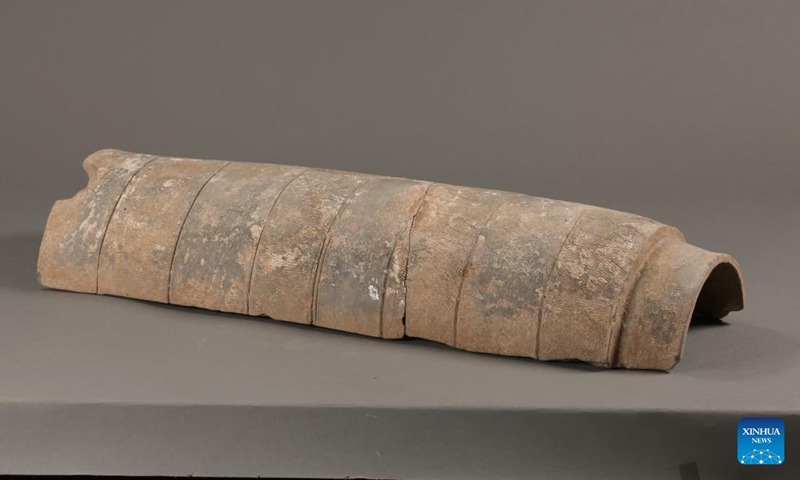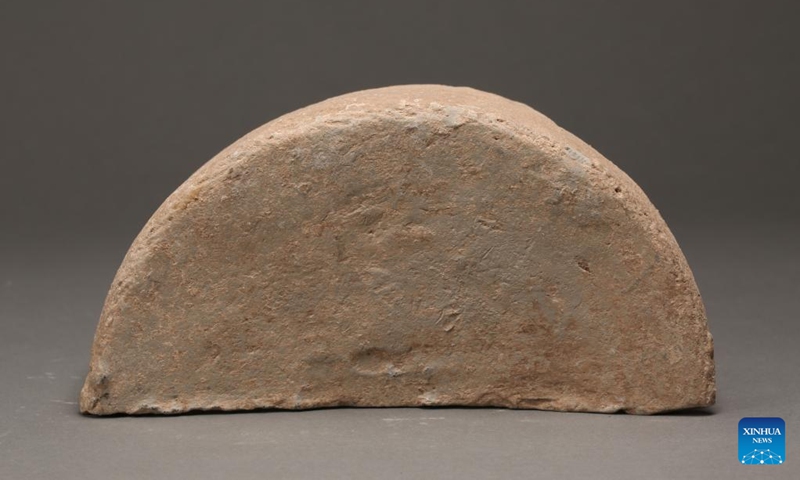
This undated file photo shows a building material unearthed at the large-scale building site dating back to the Spring and Autumn period in Baoji City, northwest China's Shaanxi Province. (Shaanxi Academy of Archaeology/Handout via Xinhua)

This undated file photo shows a building material unearthed at the large-scale building site dating back to the Spring and Autumn period in Baoji City, northwest China's Shaanxi Province. (Shaanxi Academy of Archaeology/Handout via Xinhua)
Archaeologists from northwest China's Shaanxi Province have discovered a large-scale building site dating back to the Spring and Autumn period which is more than 2,000 years ago, said the Shaanxi Academy of Archaeology.
The site was found on the east end of the ruins of Yongcheng, an ancient Qin state capital which is now located in the city of Baoji, covering an area of 50 square kilometers.
From June to December 2022, the Shaanxi Academy of Archaeology and the institute of archaeology of Baoji City, as well as two local museums, jointly launched an excavation project at the site. Only the foundation of the large-scale building was found, and it was distributed in both an east-west direction and a north-south direction.
A number of mud models for making chariots, horses, antlers and horns, as well as other raw materials for making bone tools were unearthed at the site. Ash pits and stoves belonging to the Eastern Zhou Dynasty (770 BC-256 BC), ash pits and tombs from the Han Dynasty (202 BC-220 AD), the ruins of houses, streets and wells from the Tang (618-907) and Song (960-1279) dynasties to the Ming (1368-1644) and Qing (1644-1911) dynasties were also found.
The artifacts unearthed at the site are mainly building materials of the Spring and Autumn period, all of which are argillaceous grey pottery, mainly trough-shaped slab tiles, tubular tiles, semicircular tiles, and so on. A total of 183 pieces of building materials with carved symbols on the surface were found.
According to its layout structure, the size of building materials and technical level, archaeologists speculated that this site may have been the building site of a repository, which revised the previous view that this site was the earliest large-scale palace building site in Yongcheng. It also provides scientific materials for understanding and studying the urban facilities, layout, and evolution of Yongcheng, and the architectural technology of the Eastern Zhou Dynasty.
